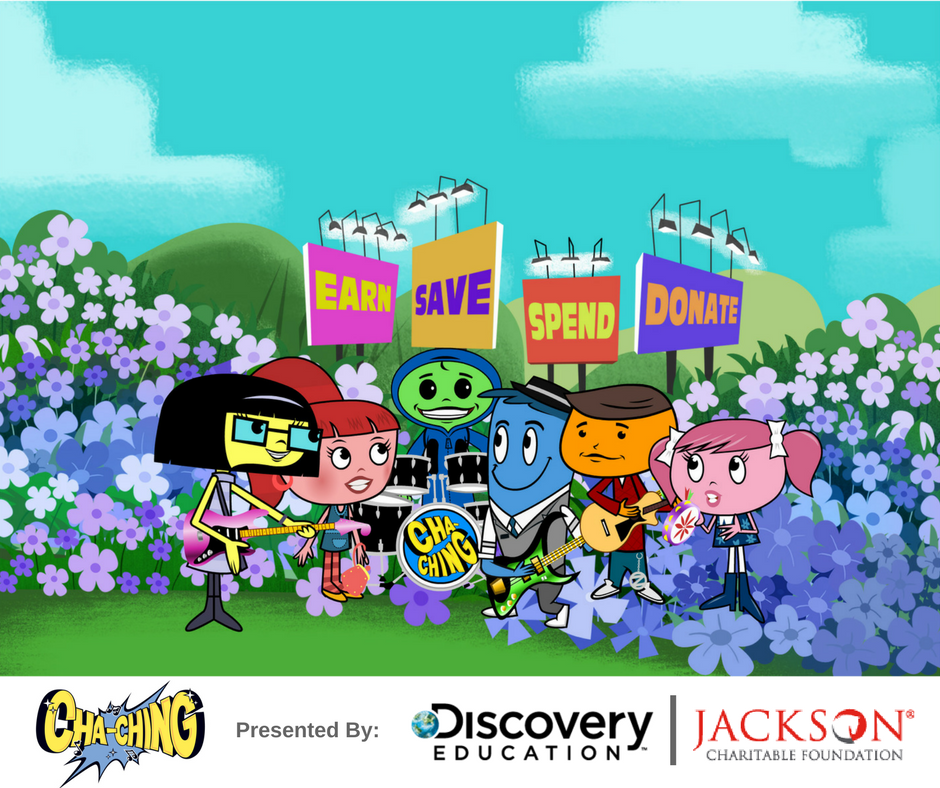Equitable Digital Financial Education Keeps Students Engaged and Grows Knowledge
by Danielle Robinson

April is Financial Literacy Month, the perfect time to face the fact that the United States has a problem with finances and now is the time do something about it.
Let us start with basic needs. The pandemic has impacted families earning at the lowest levels the hardest with job loss and financial uncertainty.[1] Fortunately, schools, food banks and other social service agencies quickly stepped up to provide basic needs for families and students. Even with this help, financial fragility plagues too many. This type of fragility is best addressed with a combination of direct assistance and financial coaching to provide long-term sustainability.
A key part of the equation? Education. According to Bellwether Education Partners and their Promise in the Time of Quarantine report[2], some schools made a pathway to success by prioritizing family engagement and technology as practical approaches to remote learning. No-cost digital resources — like those from the Cha-ChingTM Money Smart Kids financial education program presented by Jackson Charitable Foundation and Discovery Education — teach students valuable financial skills that support future financial stability. As research shows, discussing money with a trusted adult is a highly influential factor in positive (or favorable) student outcomes. Utilizing these programs also helps connect families in productive ways.
Digital resources not only help address financial fragility through education, they also confront the issue of equity of access in education. The data is clear: Equitable digital access is necessary for all students to thrive. Resources that can be accessed at home at no cost, like Cha-Ching, make strides toward that goal and keep students engaged during remote learning. When it comes to student engagement, 91.9% of the Cha-Ching educator respondents agreed students stay engaged and 93.2% believe students understand the concepts presented within the resources.
Cha Ching’s forward-thinking approach to build basic money skills with family engagement and digital resources is paying off for students. Over 90% of educators surveyed believe students connect their money choices with their futures and say the Cha-Ching resources positively influence students’ knowledge of financial literacy. Additionally, 95% agreed implementation of Cha-Ching resources increased students’ awareness of the importance of money management skills. Families and educators who are looking for ways to positively influence students’ knowledge about personal finance should consider incorporating (or utilizing) resources from Cha-Ching this Financial Literacy Month and beyond.
Danielle Robinson is Executive Director of Jackson Charitable Foundation, a nonprofit with the mission to increase financial education across the country.
###
Jackson® is the marketing name for Jackson National Life Insurance Company® (Home Office: Lansing,
Michigan) and Jackson National Life Insurance Company of New York (Home Office: Purchase, New
York). Jackson National Life Distributors LLC.
PR3350 03/21
[1] Pew Research Center, Economic Fallout From COVID-19 Continues To Hit Lower-Income Americans the Hardest, Sept. 24, 2020, https://www.pewresearch.org/social-trends/2020/09/24/economic-fallout-from-covid-19-continues-to-hit-lower-income-americans-the-hardest/#:~:text=Fully%2015%25%20of%20adults%20report,they%20are%20currently%20not%20employed
[2] Bellwether Education Partners, Promise in the Time of Quarantine, September 2020

